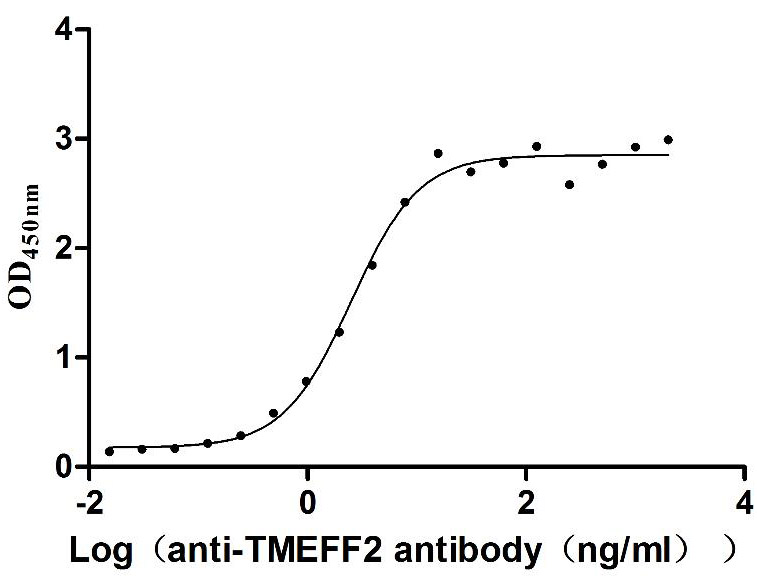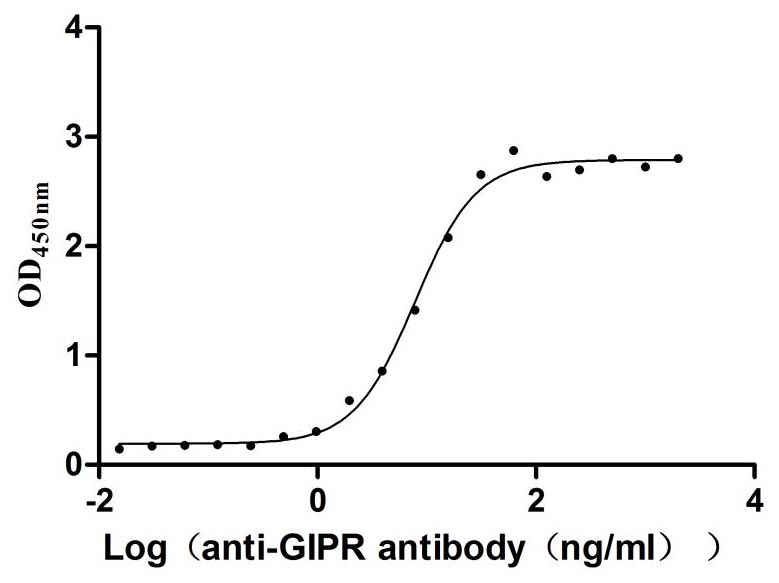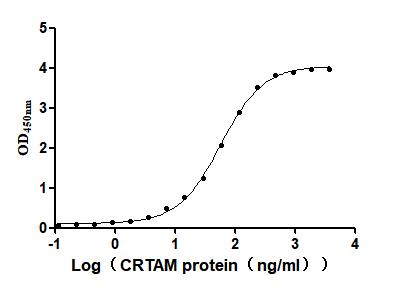Recombinant Mouse Class E basic helix-loop-helix protein 22 (Bhlhe22)
-
货号:CSB-YP806494MO
-
规格:
-
来源:Yeast
-
其他:
-
货号:CSB-EP806494MO
-
规格:
-
来源:E.coli
-
其他:
-
货号:CSB-EP806494MO-B
-
规格:
-
来源:E.coli
-
共轭:Avi-tag Biotinylated
E. coli biotin ligase (BirA) is highly specific in covalently attaching biotin to the 15 amino acid AviTag peptide. This recombinant protein was biotinylated in vivo by AviTag-BirA technology, which method is BriA catalyzes amide linkage between the biotin and the specific lysine of the AviTag.
-
其他:
-
货号:CSB-BP806494MO
-
规格:
-
来源:Baculovirus
-
其他:
-
货号:CSB-MP806494MO
-
规格:
-
来源:Mammalian cell
-
其他:
产品详情
-
纯度:>85% (SDS-PAGE)
-
基因名:Bhlhe22
-
Uniprot No.:
-
别名:Bhlhe22; Bhlhb5Class E basic helix-loop-helix protein 22; bHLHe22; Class B basic helix-loop-helix protein 5; bHLHb5; Protein BETA3
-
种属:Mus musculus (Mouse)
-
蛋白长度:full length protein
-
表达区域:1-355
-
氨基酸序列MERGLHLGAA AASEDDLFLH KSLGTSAAKR LEAAFRSTPP GMDLSLAPPT RERPASSSSP LGCFEPADPE GAGLRLPPPG GGGGASGGGG GVSVPGLLVG SAGVGGEPSL SSLPAGAALC LKYGESAGRG SVAESSGGEQ SPDDDSDGLC ELVLRAGGPD PRASPRAGGG SAKVAEGCSN AHLHGGSGLP PGGPTSGGGS GGGGGGSSKK SKEQKALRLN INARERRRMH DLNDALDELR AVIPYAHSPS VRKLSKIATL LLAKNYILMQ AQALEEMRRL VAYLNQGQAI SAASLPSSAA AAAAAAALHP ALGAYEQAAG YPFSAGLPPA ASCPEKCALF NSVSSSLCKQ CTEKP
-
蛋白标签:Tag type will be determined during the manufacturing process.
The tag type will be determined during production process. If you have specified tag type, please tell us and we will develop the specified tag preferentially. -
产品提供形式:Lyophilized powder
Note: We will preferentially ship the format that we have in stock, however, if you have any special requirement for the format, please remark your requirement when placing the order, we will prepare according to your demand. -
复溶:We recommend that this vial be briefly centrifuged prior to opening to bring the contents to the bottom. Please reconstitute protein in deionized sterile water to a concentration of 0.1-1.0 mg/mL.We recommend to add 5-50% of glycerol (final concentration) and aliquot for long-term storage at -20℃/-80℃. Our default final concentration of glycerol is 50%. Customers could use it as reference.
-
储存条件:Store at -20°C/-80°C upon receipt, aliquoting is necessary for mutiple use. Avoid repeated freeze-thaw cycles.
-
保质期:The shelf life is related to many factors, storage state, buffer ingredients, storage temperature and the stability of the protein itself.
Generally, the shelf life of liquid form is 6 months at -20°C/-80°C. The shelf life of lyophilized form is 12 months at -20°C/-80°C. -
货期:Delivery time may differ from different purchasing way or location, please kindly consult your local distributors for specific delivery time.Note: All of our proteins are default shipped with normal blue ice packs, if you request to ship with dry ice, please communicate with us in advance and extra fees will be charged.
-
注意事项:Repeated freezing and thawing is not recommended. Store working aliquots at 4°C for up to one week.
-
Datasheet :Please contact us to get it.
靶点详情
-
功能:Inhibits DNA binding of TCF3/E47 homodimers and TCF3 (E47)/NEUROD1 heterodimers and acts as a strong repressor of Neurod1 and Myod-responsive genes, probably by heterodimerization with class a basic helix-loop-helix factors. Despite the presence of an intact basic domain, does not bind to DNA. In the brain, may function as an area-specific transcription factor that regulates the postmitotic acquisition of area identities and elucidate the genetic hierarchy between progenitors and postmitotic neurons driving neocortical arealization. May be required for the survival of a specific population of inhibitory neurons in the superficial laminae of the spinal chord dorsal horn that may regulate pruritis. Seems to play a crucial role in the retinogenesis, in the specification of amacrine and bipolar subtypes. Forms with PRDM8 a transcriptional repressor complex controlling genes involved in neural development and neuronal differentiation.
-
基因功能参考文献:
- Bhlhb5 is expressed in both excitatory (unipolar brush cells) and inhibitory neurons (cartwheel cells) of the dorsal cochlear nucleus during development. Mice lacking Bhlhb5 had a diminished number of neurons. A Bhlhb5::flpo allele also genetically labels numerous other regions of the nervous system processing sensory input, including the dorsal horn, the retina, and the nucleus of the lateral olfactory tract. PMID: 27151208
- hypothesis that neuropathic itch in BHLHB5-deficient animals can be treated by restoring inhibitory controls through spinal cord transplantation and integration of precursors of inhibitory interneurons derived from embryonic medial ganglionic eminence PMID: 25003193
- Bhlhb5 is broadly expressed throughout retinogenesis, and is required for the subtype development of amacrine and bipolar cells. PMID: 24123365
- These findings suggest that Prdm8 is an obligate partner of Bhlhb5, forming a repressor complex that directs neural circuit assembly in part through the precise regulation of Cadherin-11. PMID: 22284184
- Atonal-related transcription factor Bhlhb5 is required for the survival of a specific population of inhibitory interneurons that regulate pruritis, and provide evidence that the loss of inhibitory synaptic input results in abnormal itch. PMID: 20346763
- BETA3 function is linked to the establishment rather than the initiation of neuronal fates PMID: 12175497
- Mouse Bhlhb5 can strongly repress a human PAX6 promoter. A single exon encodes a 355-amino-acid bHLH protein. PMID: 12213201
- Localization of Bhlhb5 mRNA expression in the central nervous system and sensory organs of the mouse embryo. PMID: 14643684
- The results reveal that a bHLH transcription factor cascade is involved in regulating retinal cell differentiation and imply that Bhlhb5 functions downstream of retinogenic factors to specify bipolar and amacrine subtypes. PMID: 17092954
- These results show Bhlhb5's function as an area-specific transcription factor that regulates the postmitotic acquisition of area identities and elucidate the genetic hierarchy between progenitors and postmitotic neurons driving neocortical arealization. PMID: 18957218
显示更多
收起更多
-
亚细胞定位:Nucleus.
-
组织特异性:Brain-specific, with the highest expression in the cerebellum.
-
数据库链接:
KEGG: mmu:59058
STRING: 10090.ENSMUSP00000026120
UniGene: Mm.149938
Most popular with customers
-
Recombinant Human Tumor necrosis factor receptor superfamily member 11B (TNFRSF11B) (Active)
Express system: Mammalian cell
Species: Homo sapiens (Human)
-
Recombinant Human Pro-neuregulin-1, membrane-bound isoform (NRG1), partial (Active)
Express system: Mammalian cell
Species: Homo sapiens (Human)
-
Recombinant Human Tumor necrosis factor ligand superfamily member 8 (TNFSF8), partial (Active)
Express system: Mammalian cell
Species: Homo sapiens (Human)
-
Recombinant Human Glucagon-like peptide 1 receptor (GLP1R), partial (Active)
Express system: Mammalian cell
Species: Homo sapiens (Human)
-
Recombinant Human Dickkopf-related protein 1 (DKK1) (Active)
Express system: Mammalian cell
Species: Homo sapiens (Human)
-
Recombinant Human Tomoregulin-2 (TMEFF2), partial (Active)
Express system: Mammalian cell
Species: Homo sapiens (Human)
-
Recombinant Rat Gastric inhibitory polypeptide receptor (Gipr), partial (Active)
Express system: Mammalian cell
Species: Rattus norvegicus (Rat)
-
Recombinant Mouse Cytotoxic and regulatory T-cell molecule (Crtam), partial (Active)
Express system: Mammalian cell
Species: Mus musculus (Mouse)


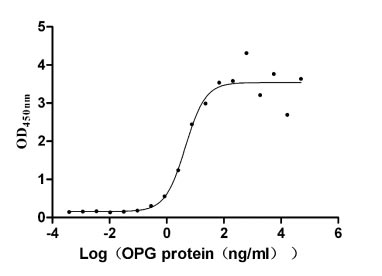
-AC1.jpg)

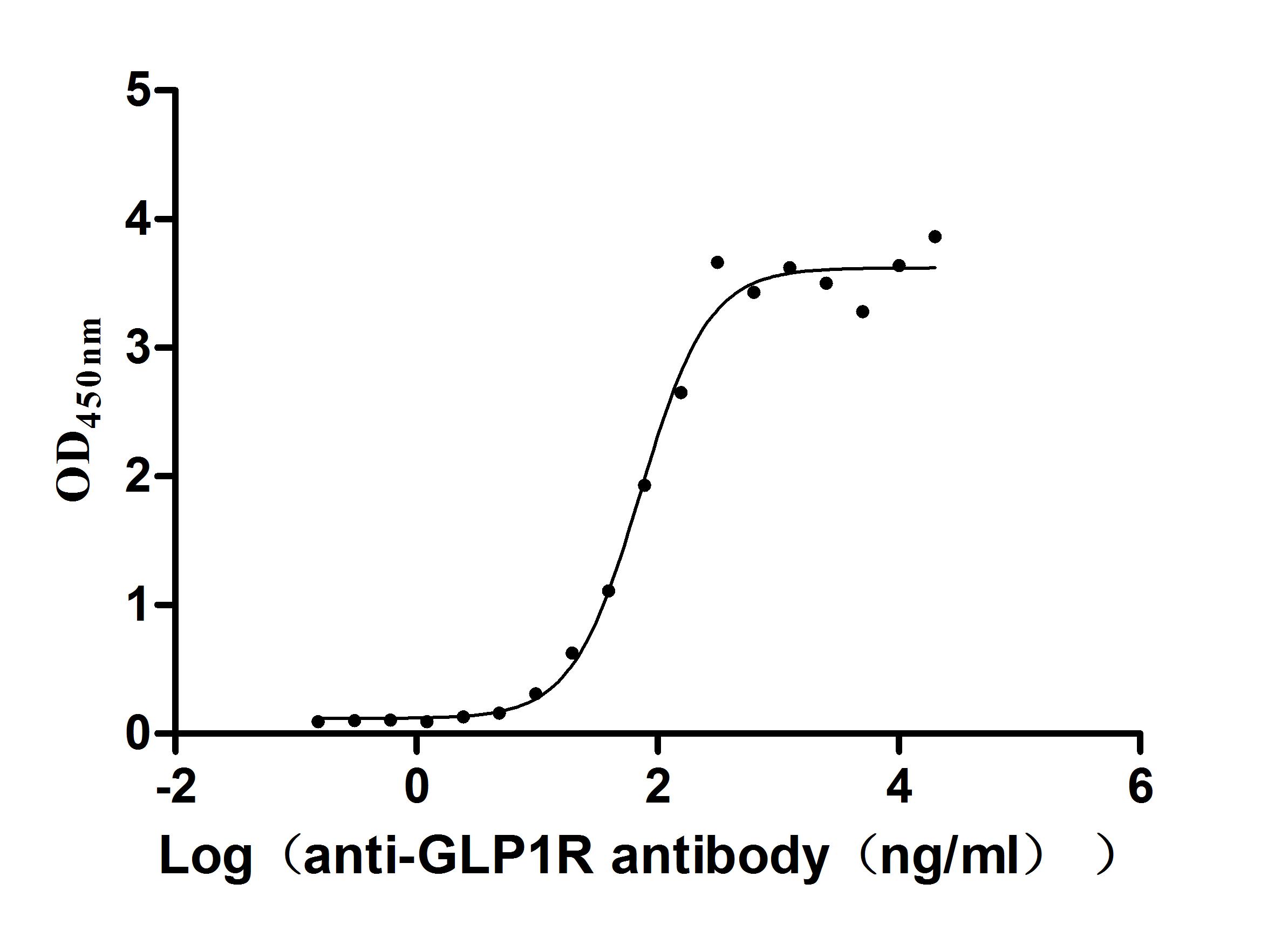
-AC1.jpg)
